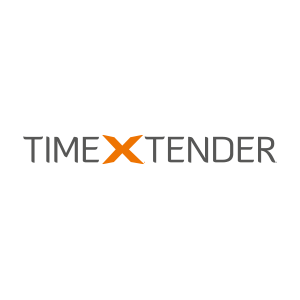Data Engineering Podcast
Exploring The Nuances Of Building An Intential Data Culture
Summary
The ecosystem for data professionals has matured to the point that there are a large and growing number of distinct roles. With the scope and importance of data steadily increasing it is important for organizations to ensure that everyone is aligned and operating in a positive environment. To help facilitate the nascent conversation about what constitutes an effective and productive data culture, the team at Data Council have dedicated an entire conference track to the subject. In this episode Pete Soderling and Maggie Hays join the show to explore this topic and their experience preparing for the upcoming conference.
Announcements
- Hello and welcome to the Data Engineering Podcast, the show about modern data management
- Hey there podcast listener, are you tired of dealing with the headache that is the 'Modern Data Stack'? We feel your pain. It's supposed to make building smarter, faster, and more flexible data infrastructures a breeze. It ends up being anything but that. Setting it up, integrating it, maintaining it—it’s all kind of a nightmare. And let's not even get started on all the extra tools you have to buy to get it to do its thing. But don't worry, there is a better way. TimeXtender takes a holistic approach to data integration that focuses on agility rather than fragmentation. By bringing all the layers of the data stack together, TimeXtender helps you build data solutions up to 10 times faster and saves you 70-80% on costs. If you're fed up with the 'Modern Data Stack', give TimeXtender a try. Head over to dataengineeringpodcast.com/timextender where you can do two things: watch us build a data estate in 15 minutes and start for free today.
- Your host is Tobias Macey and today I'm interviewing Pete Soderling and Maggie Hays about the growing importance of establishing and investing in an organization's data culture and their experience forming an entire conference track around this topic
Interview
- Introduction
- How did you get involved in the area of data management?
- Can you describe what your working definition of "Data Culture" is?
- In what ways is a data culture distinct from an organization's corporate culture? How are they interdependent?
- What are the elements that are most impactful in forming the data culture of an organization?
- What are some of the motivations that teams/companies might have in fighting against the creation and support of an explicit data culture?
- Are there any strategies that you have found helpful in counteracting those tendencies?
- In terms of the conference, what are the factors that you consider when deciding how to group the different presentations into tracks or themes?
- What are the experiences that you have had personally and in community interactions that led you to elevate data culture to be it's own track?
- What are the broad challenges that practitioners are facing as they develop their own understanding of what constitutes a healthy and productive data culture?
- What are some of the risks that you considered when forming this track and evaluating proposals?
- What are your criteria for determining whether this track is successful?
- What are the most interesting, innovative, or unexpected aspects of data culture that you have encountered through developing this track?
- What are the most interesting, unexpected, or challenging lessons that you have learned while working on selecting presentations for this year's event?
- What do you have planned for the future of this topic at Data Council events?
Contact Info
- Pete
- @petesoder on Twitter
- Maggie
Parting Question
- From your perspective, what is the biggest gap in the tooling or technology for data management today?
Closing Announcements
- Thank you for listening! Don't forget to check out our other shows. Podcast.__init__ covers the Python language, its community, and the innovative ways it is being used. The Machine Learning Podcast helps you go from idea to production with machine learning.
- Visit the site to subscribe to the show, sign up for the mailing list, and read the show notes.
- If you've learned something or tried out a project from the show then tell us about it! Email hosts@dataengineeringpodcast.com) with your story.
- To help other people find the show please leave a review on Apple Podcasts and tell your friends and co-workers
Links
- [Data Council](datacouncil.ai/austin)
- Data Community Fund
- DataHub
- Database Design For Mere Mortals by Michael J. Hernandez (affiliate link)
- SOAP
- REST
- Econometrics
- DBA == Database Administrator
- Conway's Law
- dbt
The intro and outro music is from The Hug by The Freak Fandango Orchestra / CC BY-SA
Sponsored By:
- TimeXtender:  TimeXtender is a holistic, metadata-driven solution for data integration, optimized for agility. TimeXtender provides all the features you need to build a future-proof infrastructure for ingesting, transforming, modelling, and delivering clean, reliable data in the fastest, most efficient way possible. You can't optimize for everything all at once. That's why we take a holistic approach to data integration that optimises for agility instead of fragmentation. By unifying each layer of the data stack, TimeXtender empowers you to build data solutions 10x faster while reducing costs by 70%-80%. We do this for one simple reason: because time matters. Go to [dataengineeringpodcast.com/timextender](https://www.dataengineeringpodcast.com/timextender) today to get started for free!

 Data Engineering Podcast
Data Engineering Podcast




